Board Elections 2025: Meet the Candidates


Board Elections are an important part of LPI‘s governance
Certification holders who become members of Linux Professional Institute (LPI) help keep the organization accountable, open and transparent to the open source community.
Voting begins May 31, 2025.
Members are asked to vote on two slates of candidates in order to select a total of five board directors. There are two seats available via the Nomination Committee and three seats are available via Member-Nomination.
Results will be announced at the AGM June 21, 2025.
Nomination Committee Candidates (2 Positions Available)
Candidates
Henrietta Dombrovskaya
Located in: USA
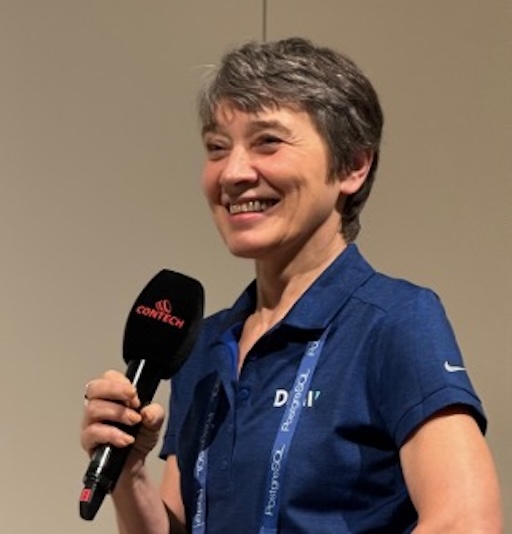
Located in: USA
Hettie Dombrovskaya is a database researcher and practitioner with over 40 years of experience. While database have always being her passion, her encounter with PostgreSQL in 2011 opened a new page in her career. Having discovered the power and the driving force of Free and Open Source Software, she gradually transitioned from a user to an active supporter of FOSS, as an advocate, a donor and an educator.
At present, Hettie is a Database Architect at DRW Holdings in Chicago Il, responsible for everything Postgres-related in her organization. She is a Postgres Contributor, an organizer of the Chicago PostgreSQL Uset Group and one of the organizers of PG Day Chicago. She is a founder of Prairie Postgres NFP, a not-for-profit dedicated to Postgres education in the Midwest states of the USA, and a Communications Chair of the ACM Chicago Chapter.
You can often see Hettie presenting at different Open Source conferences and/or teaching database performance classes. Her book “PostgreSQL Query Optimization” summarizes her journey from proprietary systems to PostgreSQL.
I am running for the board, because my values are aligned with the LPI values. I believe in the power of Open Source as a major factor in giving people from all walks of life and social standing equal opportunities to participate in software development activities. I am happy to see organization that stands for DEI regardless of the current political climate, and I want to contribute to this effort. I know that it is not enough to say “everyone is welcome,” fostering diversity and inclusion is a complicated task, and I want to be a part of it. I am also interested in being involved in creating certifications, specifically related to the data management. Looking at the variety of products which are used to store data, I feel that it’s important to define which of them can be called databases!
Emmanuel Nguimbus
Located in: Cameroon
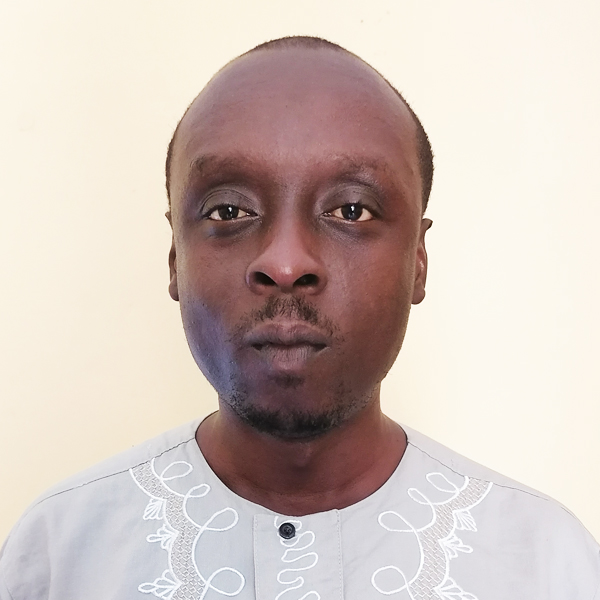
Located in: Cameroon
Emmanuel NGUIMBUS is a computer engineer, an entrepreneur, a lecturer, Mentor, LPI member, LPIC-3 certified and an LPI Approved Trainer.
He is also the co-founder of some projects using only open source: Open Telemedicine System(OpenTMS), a digital health platform, and OpenStudi, a francophone eLearning platform for FOSS. Emmanuel is a co-founder and the Chair of OPENSECURE Foundation, a non-profit organization promoting Open Source and Cybersecurity.
He is a consultant in the framework of several private and governmental projects, which operates 100% open source. He is a member of private and public working groups, project teams, monitoring and steering committees. In these contexts, Emmanuel was able to familiarize himself with issues of training, management, entrepreneurship, strategy and governance.
I want to join the LPI Board in order to bring my strengths as an engineer, trainer, teacher, entrepreneur and open source ambassador to make LPI the leader in the field of Linux certifications through the improvement of marketing, its Francophonization , its extension in places where it is less known like Africa and its positioning in the academic sector.
1. From my point of view, LPI should be the leader in the field of Linux certifications. Many efforts are being made in this direction; but this goal has not yet been achieved. For example, RedHat certifications are perceived to be more valuable than LPI certifications in the job market. My vision is to make LPI the leader in Linux certifications area.
2. Improve LPI’s Marketing and Branding. In my opinion, the designation LPIC-3 Enterprise Professional devalues this certification. For example, LPIC-2 Linux Engineer appears to have the same marketing value as LPIC-3 Enterprise Professional. After all, the Engineer title is more prestigious than Enterprise professional !
3. Improve the French-speaking side with the translation of documents (course materials) and exams into French.
4. As a native of Africa living on this continent, I can say that LPI is not known enough in Africa, especially in French-speaking Africa. Communication efforts should be made for LPI to be better known in Africa.
5. Usually, a professional uses the technology he learned in school. If a maximum of university students receive at least one LPI training course during their training, then they will promote LPI in the companies where they will work. I will do my best to help integrating LPI certifications into universities training courses.
Ricardo Prudenciato
Located in: Brazil
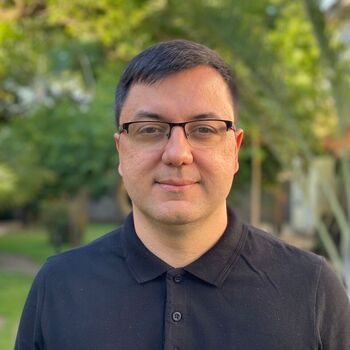
Located in: Brazil
With a degree in Information Technology and a postgraduate qualification in Computer Networks, my career has always been entirely focused on Linux and Open Source, mainly working with support and administration of systems and their services.
In over 20 years of experience, I’ve worked at many of the levels that a Linux professional will go through in their career, from trainee to senior, leading and coordinating teams. I’ve also had the opportunity to work in different types of companies, from small to large organisations.
In recent years my focus has been on teaching and mentoring professionals on their journey with Linux and Open Source, sharing the knowledge I’ve acquired throughout my career, through online training focussed on Linux and especially LPI Certifications.
I have published courses on Introduction to GNU/Linux, Shell Script Programming and Preparation for the LPIC-1, LPIC-2 and LPIC-3 Certifications, with more than 40,000 students.
In the last 3 years I have been a member of the LPI Board of Directors, having the opportunity to colaborate with many relevant initiatives that have led to growth and improvement in the organisation’s performance.
The LPI, with its certifications and initiatives, has always been important in my career and I know that it can be of great help to a professional on their journey.
Both because of my experience working directly with Linux over the last 20 years, but mainly because of the closeness I have with the community, my students and the professionals who follow my work, I believe I can help by being a means of contact, a way of bringing discussions to LPI about the real needs and difficulties encountered by professionals in their careers.
The experience of the last few years as a board member has been enriching and I would be grateful to continue collaborating.
Geraldo Silva
Located in: Angola

Located in: Angola
I am a married person, father of two wonderful children, and truly passionate about Linux and the open-source world. My professional journey is focused on Linux Systems Administration, DevOps, and Cloud, always striving for innovation and efficiency. I believe in the power of FOSS to create scalable, secure, and accessible solutions. I am driven by curiosity and a desire for continuous learning, keeping up with global technology trends. I enjoy challenges and solving complex problems, optimizing infrastructures, and automating processes. Additionally, I see knowledge sharing as a powerful tool for professional and community growth. I am always working on improving my skills, including LPIC certifications, to be prepared for new opportunities. My motivation comes from my family, technology, and the positive impact that open-source can bring to the world.
I am running for the board because I believe in the transformative impact of Linux and open source on people’s lives and businesses. I see the LPI as a powerful tool to boost careers and democratize access to knowledge. I want to help expand this mission by making certifications more accessible and aligned with global needs. Technology should be a path to opportunity, and my goal is to strengthen the community by promoting inclusion, innovation, and collaboration. I believe that the growth of open source depends on the engagement of people committed to making a difference. I want to contribute to a future where more professionals can learn, grow, and change the world through Linux.
Elizabeth Stephens
Located in: Nashville, Tn

Located in: Nashville, Tn
I am Elizabeth Stephens, a cybersecurity leader, innovator, and advocate with over two decades of experience driving transformative strategies in both corporate and military environments. My career spans leadership roles at Microsoft, entrepreneurial ventures as CEO of DBS Cyber LLC, and service as a retired U.S. Marine Corps officer. As the first female to fly the MV-22 Osprey and a combat decorated aviator, I thrive in high-stakes environments and am deeply committed to breaking barriers while fostering inclusivity.
My expertise includes architecting global cybersecurity frameworks, managing multi-million-dollar budgets, and authoring Building a Resilient Digital Future: A Comprehensive Guide to Cyber Risk Monitoring. Beyond technical acumen, I am a passionate educator, having launched initiatives like Cyber Kids to empower underserved communities, and a sought-after speaker on cybersecurity resilience. My unique blend of strategic vision, operational discipline, and dedication to community-building positions me to contribute meaningfully to LPI’s mission.
I am motivated to join the LPI Board of Directors by three core principles:
Advancing Security in Open Source: Linux and FOSS are foundational to global digital infrastructure, yet their security depends on collaborative stewardship. My cybersecurity leadership at Microsoft and through DBS Cyber equips me to help LPI prioritize secure, resilient open-source ecosystems.
Empowering Communities: I’ve built and scaled communities like Microsoft’s 150+ member Cybersecurity Community, fostering collaboration and knowledge-sharing. I aim to amplify LPI’s global community engagement, particularly in underrepresented regions.
Bridging Education and Opportunity: My work on the Cyber Risk and youth initiatives aligns with LPI’s certification goals. I will advocate for accessible, equitable training programs to grow a skilled, diverse workforce ready to lead in open-source technologies.
The LPI’s role in certifying professionals and promoting Linux resonates with my belief that technology thrives when knowledge is shared openly. I am eager to leverage my leadership, technical expertise, and community-driven mindset to support LPI’s strategic growth.
Member-Nominated Candidates (3 Positions Available)
Candidates
Simone Davide Bertulli
Located in: Italy
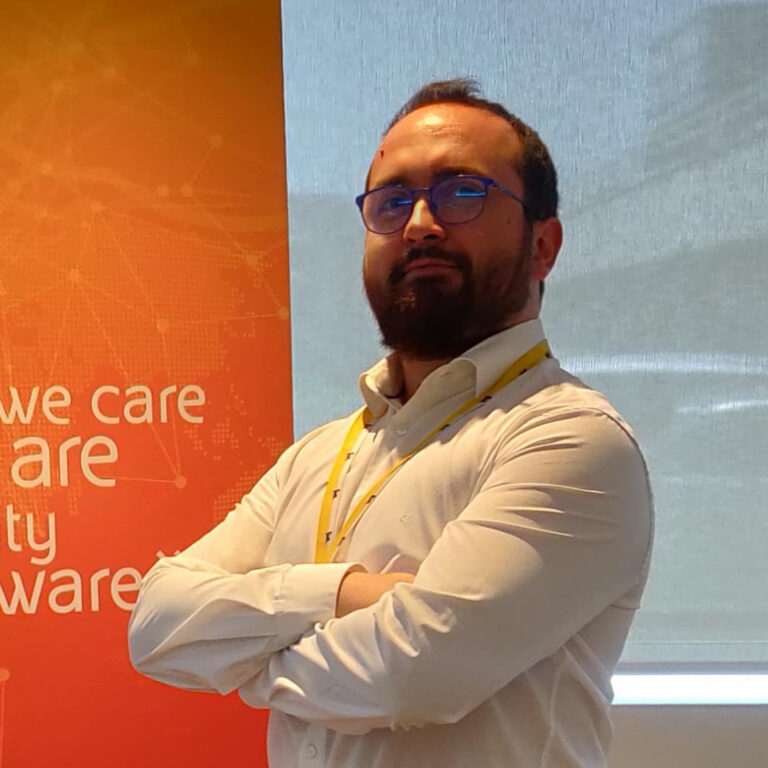
Located in: Italy
I’m a cybersecurity professional with over 8 years of experience working in the Cyber Defence Center of a major Italian Oil & Gas company, and for the past 3 years, I have also been involved in the telecommunications field.
I have written several articles for the LPI blog, including the “Security Essentials” and “LPI Membership Journey” series.
In addition, I have experience as a tech reviewer for manuals and technical courses, covering both IT security topics and infrastructure-related areas such as networking and servers.
Since 2024, I’ve been an LPI Approved Trainer.
I’m eager to contribute to the community by helping raise the standards of skills and knowledge accessible to those looking to engage with open source.
I believe I can contribute by introducing new approaches to teaching and sharing knowledge, helping to take Linux and FOSS to the next level.
Werner Fischer
Located in: Austria
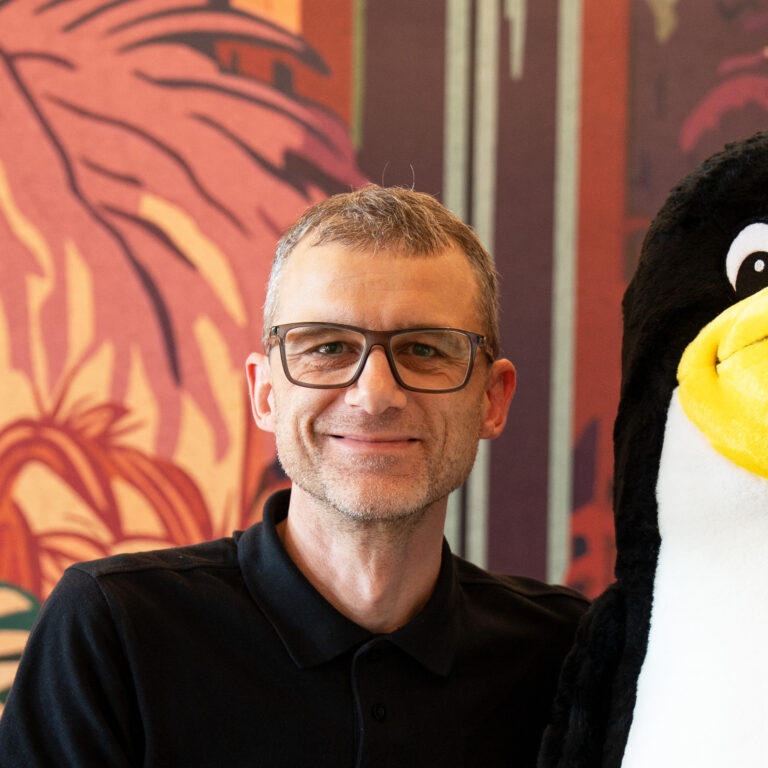
Located in: Austria
My name is Werner, I’m from Austria and I’ve been a passionate Linux user for more than 20 years. In the early 2000s I studied Computer and Media Security at the University of Applied Sciences in Hagenberg.
In 2003 I started my internship at the IBM Advanced Technical Support Lab in Mainz, Germany. I was far away from home, so besides using Linux in the lab, I also had the time and opportunity to remove the former commercial operating system from my private laptop and install Fedora 1. After my thesis I stayed at IBM until 2005, working on Linux storage projects. During this time I had the opportunity to write the Linux chapters of two IBM Redbooks at IBM Almaden Research Center and IBM Raleigh.
After that I joined my current employer, the German server company Thomas-Krenn. In the 20 years at Thomas-Krenn I have worked in various roles: developing virtualized Linux high availability clusters, managing the web operations and knowledge transfer team, building the publicly accessible Thomas-Krenn-Wiki where the company shares its server knowledge, and much more. In 2023 I founded the Thomas-Krenn Linux User Group with some colleagues. More than 50 people (>20% of all staff) joined it. We organize LPI courses and many other initiatives to support the use of Linux.
Since 2006 I’ve been speaking at various conferences, e.g. LinuxTag, LinuxCon, Open Source Monitoring Conference, Open Source Datacenter Conference, Open Source Summit Europe, DENOG, S2N, Chemnitzer Linux-Tage and many more. The main topics of my talks are storage and hardware related. To better understand the Linux storage stack, I asked Christoph Hellwig and Hannes Reinecke some questions at LinuxCon 2011 in Prague – this was the beginning of the “Linux Storage Stack Diagram”.
I’m passionate about sharing knowledge. I have published more than 1,000 articles in the Thomas-Krenn-Wiki. I also write for magazines from time to time, e.g. Linux/ADMIN Magazine or the German c’t and iX magazines.
Although I’m not a real developer, I have contributed to some hardware monitoring plugins and some small patches to the Linux kernel.
Recently, I have become the first LPI Approved Trainer in Austria.
I care about free and open source software and privacy. It is important to me that everyone is in control of their own data and that corporations are not the masters of private data of individuals and companies. So I encourage people not only to use FOSS on their computers, but also to use open source solutions like /e/OS on their smartphones.
I am applying for the LPI Board because I want to further increase awareness of the great possibilities of FOSS. I would like to help bring the countless benefits of FOSS closer to children and young people in particular.
I want to show how education should be open to everyone and thus offer development opportunities to people of all social classes – regardless of their or their parents’ income.
For this reason, I’m also applying as a potential future LPI Channel Partner, and I am in the process of supporting schools and universities in particular in integrating LPI programs into the curriculum and thus offering graduates even better opportunities on the job market. I am also doing this out of a concrete motivation: our older son, who had practically only used Linux since he was about six years old until the 5th grade, was given a heavily subsidized laptop in our home country like every student – equipped with cloud-based solutions from a large well-known commercial company. Every chat, every exchange with teachers goes directly to the cloud of this commercial provider. I would like to help reduce this great dependency, which I believe is also dubious in terms of democracy policy, by using Open Source software and support schools in promoting Open Source. The data of our children and young people belongs to them and not to corporations.
I really enjoy exchanging ideas with other people and learning from people from other parts of the world. Of course, there are often conflicts in life and you are often caught between two stools. Even as a student, I was involved in interest groups and was often the link between students, teachers and parents as school spokesperson and member of the state and national student representatives.
As a potential member of the LPI Board of Directors, I would like to continue to make a significant contribution to the open sharing of knowledge and the strengthening of privacy.
Tiago Felipe Goncalves
Located in: The Netherlands
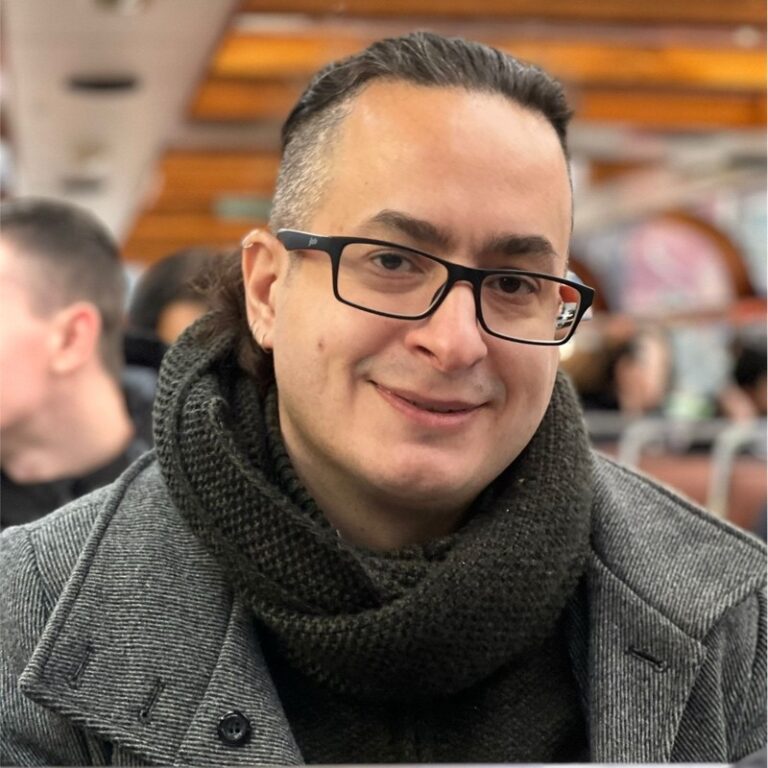
Located in: The Netherlands
Tiago Felipe Gonçalves is a Senior Network Engineer with a 24-year career deeply immersed in Linux and open source technologies. As an Italo-Brazilian professional currently based in the Netherlands, he brings a unique global perspective to the open source community, having worked across multiple regions and diverse technological environments.
Currently serving in dual roles as a Senior Network Engineer at Booking.com and a Senior Network Development Engineer at IX.br, Tiago specializes in complex infrastructure design, network automation, and security implementation. His technical expertise spans Linux, BSD, routing protocols, cloud architectures, containerization, and programming in Python, Shell, Perl, Rust, and Golang.
Tiago holds an impressive portfolio of 44+ certifications, including the complete Linux Professional Institute certification track (LPIC-1, LPIC-2, LPIC-3 Virtualization and Containerization, and BSD Specialist). His education includes a post-graduate degree in Advanced Cisco Networks Management, a specialization in Computer Networks from the State University of Campinas, and a graduate degree in Technology in Computer Networks.
Beyond his professional roles, Tiago served as a MANRS (Mutually Agreed Norms for Routing Security) Ambassador, where he mentors fellows, promotes routing security awareness, and contributes to global internet stability. He also volunteers as a translator for PeeringDB, helping to make critical internet infrastructure resources accessible across language barriers.
As a passionate advocate for open source, Tiago has designed and implemented numerous innovative solutions throughout his career, including a petabyte-scale netflow/sflow collection system for IX.br built entirely with open source technologies, a scalable Route Server solution serving 36 Internet Exchange Points with dynamic configuration for around 3,000 peers, and a chat operations bot integrated with multiple LLMs that serves thousands of users. His work consistently demonstrates how open source technologies can solve complex challenges while promoting accessibility and knowledge sharing.
Fluent in Portuguese, English, and Italian, with elementary proficiency in Spanish and Dutch, Tiago brings a multicultural perspective to his work. A family man with one child, he embodies the qualities of persistence, resilience, commitment, and a self-taught approach to professional growth that align perfectly with the open source ethos.
I am running for the Linux Professional Institute board because I believe in leveraging open standards and open source technologies to build a more inclusive, accessible, and technically robust digital ecosystem.
My 24-year journey with Linux and open source has taken me from small local deployments to designing and maintaining critical internet infrastructure that supports billions of connections. Through this experience, I’ve developed a deep appreciation for how open source creates pathways for professionals worldwide while establishing crucial standards for our industry, with organizations like LPI playing a vital role in formalizing, improving, and recognizing these skills.
As a holder of LPI certifications and someone who applies these skills daily in mission-critical environments, I understand both the technical foundations and evolving demands of our field. My experience building open source solutions for Internet Exchange Points, global platforms, Internet Service Providers, and routing security initiatives has shown me how open source skills translate across sectors and geographies.
I’m interested in contributing to areas where my experience aligns with LPI’s ongoing mission. Having implemented open source solutions across diverse environments, I’ve observed how certification programs must continuously evolve to balance foundational Linux knowledge with emerging technologies. My international background has shown me the importance of making resources accessible across languages and regions, while my hands-on experience connects certification with practical implementation. Through my volunteer work and community participation, I’ve seen the powerful impact of knowledge-sharing networks and would be eager to support LPI’s community-building initiatives that connect certified professionals with mentorship and growth opportunities. I envision LPI continuing to modernize its offerings while maintaining the core technical rigor that has made it respected globally, ensuring its programs remain both accessible and relevant for professionals worldwide.
The Linux and open source landscape continues to evolve, powering everything from embedded devices to hyperscale cloud infrastructure. As this evolution accelerates, LPI’s role in professional development becomes increasingly critical. I would be honored to contribute my technical expertise, international perspective, and passion for open source education to help guide LPI’s important mission.
Christoforos Pliatsikas
Located in: Patra, Greece
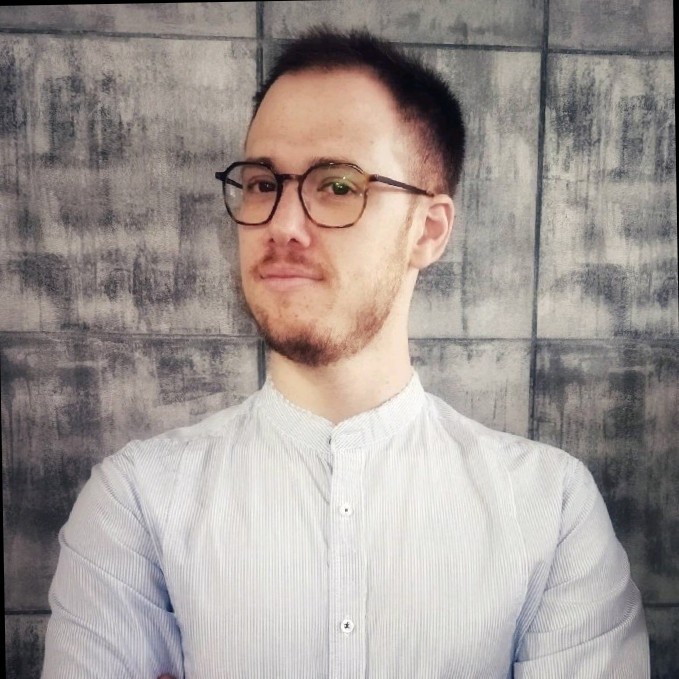
Located in: Patra, Greece
Hello, I’m Christopher—a cybersecurity engineer by profession and a free and open-source advocate by choice.
I started learning Linux as a way to improve my resume, but I quickly fell in love with it. Linux led me to discover homelabbing as a hobby, which in turn sparked my passion for cybersecurity. The rest, as they say, is history.
Currently, I work as an ICS/OT cybersecurity engineer for the multinational company Powerfactors. I am also an LPI-approved trainer for an LPI partner academy in Cyprus and Greece, where I teach Linux Essentials and LPIC-1 to IT professionals and students. Additionally, I am a founding member of the Cyber Security Challenge Greece (CSCGR), an annual CTF-style competition designed to bridge the gap between academia and the cybersecurity industry, helping aspiring students launch their careers in the field.
Looking back, I see all of this as a domino effect that started with my decision to learn Linux. I’m grateful I did—it changed my life. Ever since, I’ve been committed to promoting FOSS through workshops and seminars at local universities and by advocating for open-source solutions in my professional work.
For me, FOSS isn’t just about software; it’s a philosophy of collaboration, transparency, and empowerment. I live by it, and I strive to help it grow, especially in regions like Greece, where its presence outside academia is still evolving.
| I am running for a board seat because I am deeply committed to the values of Free and Open Source Software (FOSS) and its role in shaping a more secure, transparent, and collaborative digital future. My journey into cybersecurity and professional growth can be traced back to my decision to learn Linux, and ever since, I have dedicated myself to giving back to the community that shaped my career.
As a cybersecurity engineer working in ICS/OT security for a multinational company, I have firsthand experience integrating FOSS solutions into large-scale security projects, demonstrating that open-source software is not just a cost-effective alternative but a powerful and reliable choice for enterprises. Additionally, as an LPI-approved trainer, I have educated IT professionals and students in Greece and Cyprus, helping them build strong Linux foundations and fostering the next generation of FOSS advocates. Beyond my professional roles, I have actively worked to expand FOSS adoption in Greece. I played a key role in establishing the first LPI partner in the country and have organized free workshops and seminars at universities to promote open-source technologies. As a founding member of the Cyber Security Challenge Greece (CSCG), I have also worked to bridge the gap between academia and the cybersecurity industry, securing LPI sponsorship to provide opportunities for aspiring professionals. If elected to the board, I will focus on increasing FOSS awareness, supporting educational initiatives, and strengthening industry partnerships to create more opportunities for professionals and students alike. I believe that FOSS is more than just technology—it’s a movement that empowers individuals, organizations, and communities. My goal is to help it grow, particularly in regions where its adoption is still developing. I bring a strong mix of technical expertise, teaching experience, and community-building skills to the table, and I am eager to contribute my knowledge and passion to the board. |